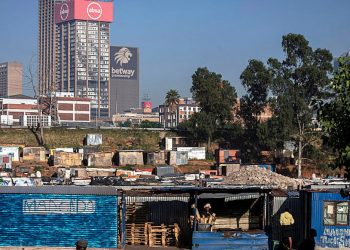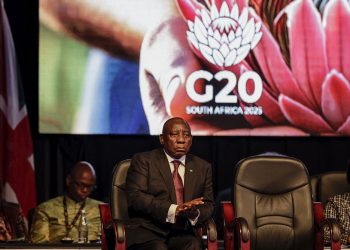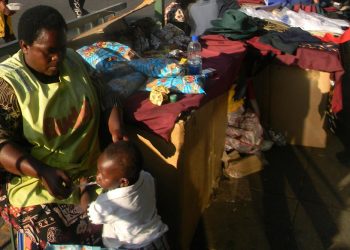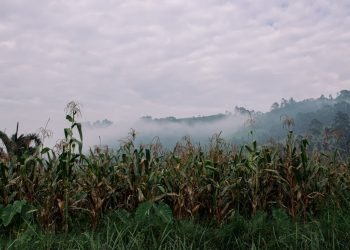Societies around the world are confronted with complex problems that defy resolution by any single actor, even well-resourced governments or corporations. Problems like food security, climate change, or biodiversity loss involve a lot of elements and dynamics. A variety of stakeholders need to be involved in creating effective responses to such problems.
The difficulty is not only in creating coordinated responses. There is often also a need to develop a shared understanding of what the problem and its underlying causes actually are.
To foster a shared understanding and coordinated, innovative action, it can help to convene key players in multi-stakeholder dialogue processes.
A first step is to identify and enrol the actors that are either influential in – or directly affected by – the focal problem. These people are then invited to engage in dialogue with each other in a carefully designed, structured process.
Processes can take a variety of forms. But a common feature is that participants have enough time and support to look at the problem from different angles, to interact in ways that break down stereotypes, and to think afresh about new ways of acting.
Fifteen years ago, we were involved in establishing a platform for multi-stakeholder dialogue with a focus on the problem of hunger and food insecurity. It is called the Southern Africa Food Lab. Recently, we analysed the numerous dialogue processes hosted by this initiative over the years to better understand when and how they can make a positive difference.
We found that even though some dialogue processes don’t seem to be obviously successful, they can play an important role in enabling subsequent dialogues to have far-reaching impacts. And for dialogue to have an impact, it needs to involve a “deeper” kind of participant interaction, beyond formal roles, polite facades, and adversarial debate.
What does success look like, and when is it achieved?
Participants and funders are unlikely to remain committed to a dialogue process if they feel it is little more than a series of “talk-shops”. We wanted to achieve tangible changes in government policies and corporate strategies, or collaborative actions that combine resources from different organisations.
Because we had hosted numerous dialogue initiatives over the 15-year lifespan of the Food Lab, in our analysis we were able to compare different processes in terms of their impacts.
We found that some of the dialogue processes – especially the early ones – had relatively limited impacts. Though the participants said they’d gained new insights and formed new relationships, there were few changes in organisational policies or practices.
For example, early on in the initiative, we hosted a dialogue on supporting smallholder farmers. Participants emphasised that they learnt important lessons during this process. During field trips in different parts of the country, they came to appreciate the diverse difficulties encountered by smallholder farmers. And government officials appreciated academics’ analysis of the different kinds of smallholder farmers and corresponding support needs. But these insights and experiences did not yet result in changes in organisational behaviours or strategies.
Other initiatives were more obviously successful in creating new and influential responses to the hunger problem. For example, we convened a second dialogue focused on smallholder farmers 18 months after the first one. It included some of the same participants as the first process, as well as others. This process resulted in more far-reaching changes.
For instance, retail companies agreed to revise their supplier standards so that smallholder farmers’ diverse needs and challenges were better accounted for. Government officials used the dialogue to redesign their agricultural extension services. A farmer training programme was established with links to a more context-sensitive and supportive certification system.
In our analysis, we considered many different explanations for why some dialogue processes were more successful than others. We discovered a pattern: our early dialogue processes were less likely to have impact than subsequent, follow-up dialogues.
The early dialogues played a crucial role, however, in preparing the ground for the subsequent dialogues to be more effective. They helped participants develop the insights and relationships that enabled the deeper engagement necessary to create real changes.
What kind of dialogue is needed?
To create meaningful change, a dialogue needs to move from what we call “shallow” to “deep” dialogue. Shallow dialogue is the more common kind. It is what happens when different people are invited to a workshop and their interactions are shaped by their established views of themselves, the problem at hand, and other actors. Often they hide behind polite facades or blame each other.
Deep dialogue, in contrast, has a distinct flavour and temperament. Participants gain a more multi-faceted understanding of each other. Thabo is not just a government official but also passionate about nature-based farming. John is not just a corporate manager but also volunteers for animal rights.
Participants’ focus shifts from defending their personal views or organisational interests to a more expansive, genuine interest in learning from each other, and to exploring new ways to understand the focal problem and possible responses.
How can this kind of dialogue be achieved?
First, the potential for multi-stakeholder dialogue needs to be carefully assessed and motivated. Participants and funders need to agree that the problem is complex and in need of fresh responses. This rationale needs to be continuously reviewed and communicated to maintain commitment and engagement.
Second, it is important to get the “right people” to participate in the process. This includes actors with influence, such as government officials or leaders. But it also includes people who are most directly affected by the focal problem, not least because they have unique knowledge about it.
Third, convening and facilitating dialogue requires a range of commitments, resources and skills. For a start, as university-based researchers we had some degree of convening power. Participants perceived us to have at least some degree of neutrality. We needed to maintain this perception as much as possible, for example by being careful about what funding to accept. This was important given the controversies in the food security field.
We also had to make sure we had the necessary facilitation competencies. Especially in the early years, we benefited from facilitators who had a lot of experience in this kind of thing. A facilitator needs to be able to make participants feel comfortable but, when necessary, challenge them to move beyond their “comfort zone”.
Finally, it is helpful to recognise the cyclical and longer-term nature of dialogue – earlier processes create the “groundwork” for subsequent ones. This means that, as conveners, we needed to find ways of keeping the initiative alive in the periods in between dialogue processes, even if there was no funding available. In our case, it helped that we were university researchers who did not rely on consulting fees. More generally, conveners and funders should budget for “bridging” resources to enable the longer-term unfolding of dialogue’s true impact.
Rebecca Freeth is a co-author of this article. She is a senior consultant with Reos Partners (Africa office).
Ralph Hamann's work with the Southern Africa Food Lab has benefited from funding from the African Climate and Development Institute, the University of Cape Town, and the National Research Foundation. The Food Lab's funders are listed on its website.
Scott Drimie co-directs the Southern Africa Food Lab.
Warren Nilsson is affiliated with the University of Vermont and the Institute for Collective Wellbeing.














